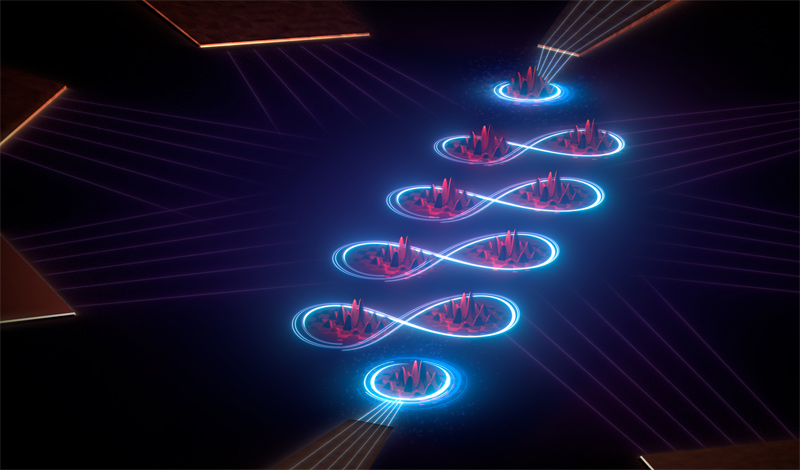
3rd July 2022
World’s first quantum computer integrated circuit
The world’s first quantum computer integrated circuit has been demonstrated at the University of New South Wales (UNSW), Australia.

Silicon Quantum Computing (SQC) is an Australian company formed in May 2017 by a collaboration including UNSW Sydney, the Commonwealth of Australia, Telstra Corporation, and the State of New South Wales. Funded with A$83 million (US$57m), it acquired a portfolio of world-leading quantum computing intellectual property (IP) and has been at the forefront of global efforts to bring commercial-scale quantum computers to market.
SQC comprises a world-class team of quantum scientists, engineers, and technicians, as well as specialist equipment and laboratories at UNSW. In addition to its core processor technology, the company is developing a “full stack” quantum computer to ensure it can deliver a useful and manufacturable device.
In 2012, a team at UNSW created the first ever quantum transistor, just a single atom in size. Following the establishment of SQC and further years of research and development, they have just announced their biggest milestone to date: the world’s first integrated circuit manufactured at the atomic scale. Furthermore, this has been achieved two years ahead of schedule.
The researchers used a scanning tunnelling microscope in an ultra-high vacuum to place quantum dots on the chip. This required extraordinary precision – at the sub-nanometre scale. For the device to work, the exact number of phosphorus atoms had to be determined for each dot, as well as the exact spacing between each one. This is needed so that their energy levels are perfectly aligned, electrons pass easily through them, and quantum coherence is maintained. The chip features a total of 10 quantum dots, as seen below.

They then used this analogue quantum processor to accurately model the quantum states of a small, organic polyacetylene molecule – definitively proving the validity of the company’s technology for modelling quantum systems.
“This is a major breakthrough,” said Michelle Simmons, Professor of Quantum Physics at UNSW, and the founder of SQC, who described the quantum circuit as the biggest result of her career. “Today’s classical computers struggle to simulate even relatively small molecules due to the large number of possible interactions between atoms. The development of SQC’s atomic-scale circuit technology will allow the company and its customers to construct quantum models for a range of new materials, whether they be pharmaceuticals, materials for batteries, or catalysts. It won’t be long before we can start to realise new materials that have never existed before.”
“With critical and emerging technologies such as quantum hardware, stakeholders gain huge confidence from the technical team’s ability to meet stated milestones. To reach such a landmark two years ahead of schedule is a triumph,” said Stephen Menzies, SQC Chairman. “SQC’s engineers are now scaling the technology to address more industrially relevant molecules and as a business we look forward to developing targeted industry partnerships to address their simulation needs.”
The ability to observe precisely how molecules function at the atomic scale would remove a lot of the guesswork in the creation of new materials. To simulate a penicillin molecule with 41 atoms, a classical computer would need 1086 transistors, which is more transistors than there are atoms in the observable universe. But a quantum computer would require a processor with only 286 qubits (quantum bits).
The next technical milestone for SQC is expected to be a 100-qubit quantum device. In addition to its quantum circuit breakthrough, the company recently announced the launch of A$130 million in Series A funding for development, operations, and strategic activities from 2023 to 2028.
“SQC’s unique approach ensures the scalability and quality of our tech. Combined with our ability to manufacture in-house and secure talent and partnerships, we’re on track to deliver useful commercial quantum computing by 2028,” said Menzies.
—
• Follow us on Twitter
• Follow us on Facebook
• Subscribe to us on YouTube
Comments »